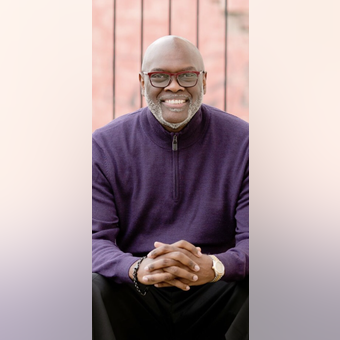Fox News Flash top headlines for May 10
Fox News Flash top headlines are here. Check out what's clicking on Foxnews.com.
If you flip through the pages of our history books, you’ll find chapter after chapter of our government trying to help communities of color and coming up terribly short. Often, trying to help one group has come at the expense of another – a trade-off with which the Black community is too familiar. And amid the nationwide movement to eradicate this information from our curriculum, the powers that be still haven’t learned their lesson.
At the end of April, the U.S. Food and Drug Administration announced its proposal to ban menthol tobacco products. The target of the proposal is menthol cigarettes which are the most common choice of Black smokers.
As such, this federal government move would affect Black and Brown communities more than any others. Have we learned nothing from banning other substances? If you're going to ban one product, why not ban them all?
FDA RELEASES PLAN TO BAN MENTHOL IN CIGARETTES, CIGARS
We’re seemingly doomed to repeat the unfortunate history of past prohibitions. When the federal government outlawed the possession of cannabis, it unwittingly opened the door to Black and Brown over-incarceration.
Today, just over 50 years since the beginning of the "war on drugs," our communities are still reeling from the ripple effects of such misguided policing. As recently as 2018, the Vera Institute of Justice found that 41% of our incarcerated population was Black.
Our federal prisons aren’t very equitable. Despite making up only 14% of the country, almost 40% of our prison population is Black, according to the Federal Bureau of Prisons. To rectify these decades long injustices, we must support policies to further equity both in our own backyard and in a larger sense.
E-CIGS USING SYNTHETIC NICOTINE NOW UNDER FDA OVERSIGHT
A confused ban on menthol cigarettes, certainly doesn’t fit that bill. Several prominent Black leaders oppose the notion, including civil rights leaders Rev. Al Sharpton, Attorney Benjamin Crump and Rev. Dr. Boise Kimber.

FILE - This May 17, 2018 file photo shows packs of menthol cigarettes and other tobacco products at a store in San Francisco. As federal officials finalize a long-awaited plan to ban menthol cigarettes, dozens of interest groups have met with White House staffers to try and influence the process, which has the potential to save thousands of lives while wiping out billions in tobacco sales. (AP Photo/Jeff Chiu, File)
Perhaps they’ve followed the proposal to its inevitable conclusion: over-policing minorities. Given menthol cigarettes’ prominence in our community, I wouldn’t be surprised if local police departments keep a closer-than-normal eye on Black neighborhoods and especially Black smokers. After all, they’d just be doing their jobs enforcing yet another prohibition. But this attention could have tragic results.
Law enforcement has proven itself either unable or largely unwilling to concede its unbridled authority to harass and brutalize Black citizens.
Given menthol cigarettes’ prominence in our community, I wouldn’t be surprised if local police departments keep a closer-than-normal eye on Black neighborhoods and especially Black smokers.
On July 17, 2014, police officers murdered Eric Garner on Staten Island, N.Y., for allegedly selling "loosies," or untaxed cigarettes. Despite ample evidence to the contrary, no court has ever found the perpetrators legally responsible.
How long until my state experiences something similar?
CLICK HERE TO GET THE OPINION NEWSLETTER
By the time we realize how bad this idea is for America, it’ll be too late. Proponents of this ban argue that the historical considerations outweigh this outlook.
What comfort is that to the parents of children who are harassed by police daily? Our institutions aren’t equipped to handle this ban, so we shouldn’t stand idly by while our government forces it through. Instead, we must stifle such proposals where they stand and make our voices heard in rallies and public comments to the Food and Drug Administration when the time comes.
CLICK HERE TO GET THE FOX NEWS APP
Unwarranted prohibitions demand as much. We have seen in the past that stop-and-frisk actually becomes stop-Blacks-and-frisk.
Before we hand over that authority to law enforcement, we demand to see substantive change. Without due protections, I don’t see how the federal government’s proposal will help Black and Brown communities.


